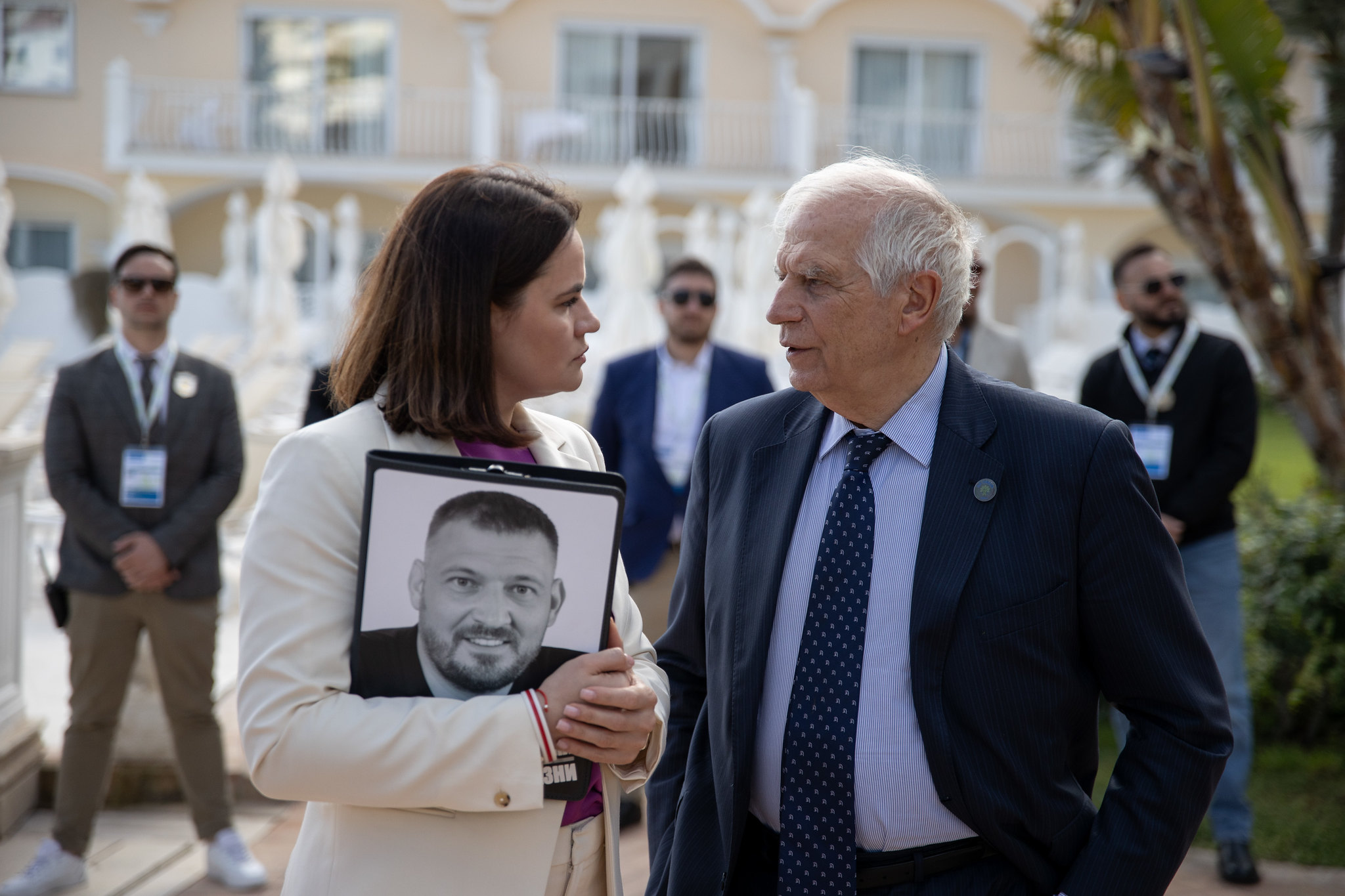Diplomatic Successes of Sviatlana Tsikhanouskaya: Asset for Democratic Forces and Investment in the Future?
 The situation has gotten better
The situation has gotten better

Sviatlana Tsikhanouskaya’s diplomatic successes appear routine yet significantly contrast with the international isolation of Lukashenko. Despite authoritarian backlash and societal fatigue, democratic forces manage effective communication with the West and garner support. Tsikhanouskaya’s status as a recognized democratic leader bolsters the position of democratic forces in the eyes of the nomenclature—in case of a potential power transition.
Tsikhanouskaya, the leader of democratic Belarus, met with leading global politicians at the G7 ministerial summit in Italy, a key event for promoting the interests of the Belarusian civil society on the international stage.
Participation in the G7 ministerial summit, along with invitations to the European Union’s parliamentary summit, solidifies Tsikhanouskaya’s diplomatic achievements. Her international contacts and meetings starkly contrast with Lukashenko’s rare foreign visits, the majority of which are to Russia for meetings with Putin.
Democratic forces draw international attention to the situation in Belarus. High-level political communication helps ease restrictions on Belarusian political emigrants.
The democratic forces promote the thesis of holding the Lukashenko regime accountable for its participation in Kremlin’s aggression, in contrast to the anti-war consensus within the Belarusian society.
However, criticism of Tsikhanouskaya’s team intensifies as elections to the Coordination Council (CC) approach. Likely, individual political organizations aim to test their potential to consolidate Tsikhanouskaya’s opponents ahead of the CC’s renewal. For instance, Pavel Usau, a founder of the “Free Belarus” initiative, presents successive claims against Tsikhanouskaya and her team.
Nevertheless, undermining Tsikhanouskaya’s representative legitimacy as the leader of the democratic movement would significantly weaken the position of the civil society on the international stage. Consequently, the attention of democratic capitals to the situation in Belarus would decrease. This, among other things, could lead to a substantial reduction in international support, thereby narrowing the opportunities for the activities of civil society organizations and independent media.
It is noteworthy that during the upcoming power transition, the role of a universally recognized democratic leader in negotiation processes and attracting nomenclature representatives to the democratic side significantly increases, creating additional favorable conditions for democratic transformation.
Subscribe to our newsletter




Situation in Belarus
Constitutional referendum: main consequences


 Video
Video
How to count the political prisoners: are the new criteria needed?


 Video
Video
Paternalism In Decline, Belarusian Euroscepticism, And The Influence Of Russia


 Video
Video












